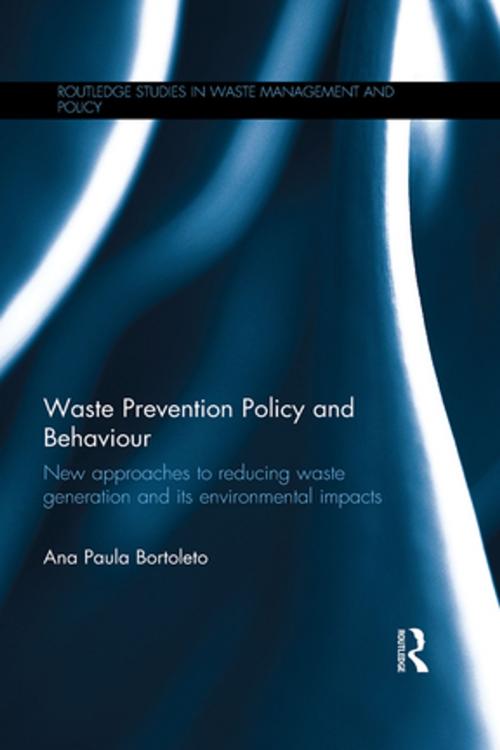Waste Prevention Policy and Behaviour
New Approaches to Reducing Waste Generation and its Environmental Impacts
Nonfiction, Social & Cultural Studies, Political Science, Government, Public Policy| Author: | Ana Paula Bortoleto | ISBN: | 9781317815204 |
| Publisher: | Taylor and Francis | Publication: | August 27, 2014 |
| Imprint: | Routledge | Language: | English |
| Author: | Ana Paula Bortoleto |
| ISBN: | 9781317815204 |
| Publisher: | Taylor and Francis |
| Publication: | August 27, 2014 |
| Imprint: | Routledge |
| Language: | English |
As prosperity levels rise, so too does the number of products and services being consumed. For policy makers in waste management facing a growing challenge, it is vital to understand the complex relationship between waste prevention policies and individual behaviour regarding waste generation. This book examines that interplay, taking a close look at the role of motivation, difficulties, values and constraints.
The first part of the book explores the theoretical framework, policy, barriers and facilitators for waste prevention behaviour. The second part presents in-depth case studies from three cities (Sao Paulo, Sheffield and Tokyo) examining the contextual factors, behavioural variations among them and the role of motivation and constraints in their populations. The book provides a detailed picture of how waste prevention policies enter the private, domestic sphere, offering insights for generating behavioural change at the household level and thus moving larger communities towards sustainable waste management.
The book will be of interest to students and researchers in the areas of environmental policy, management, sociology, psychology, geography, technology and waste studies.
As prosperity levels rise, so too does the number of products and services being consumed. For policy makers in waste management facing a growing challenge, it is vital to understand the complex relationship between waste prevention policies and individual behaviour regarding waste generation. This book examines that interplay, taking a close look at the role of motivation, difficulties, values and constraints.
The first part of the book explores the theoretical framework, policy, barriers and facilitators for waste prevention behaviour. The second part presents in-depth case studies from three cities (Sao Paulo, Sheffield and Tokyo) examining the contextual factors, behavioural variations among them and the role of motivation and constraints in their populations. The book provides a detailed picture of how waste prevention policies enter the private, domestic sphere, offering insights for generating behavioural change at the household level and thus moving larger communities towards sustainable waste management.
The book will be of interest to students and researchers in the areas of environmental policy, management, sociology, psychology, geography, technology and waste studies.















